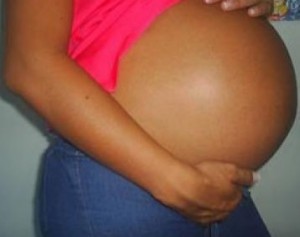Upper West Region records 158 neonatal deaths
 The Upper West Region has for the last three years, recorded 158 neonatal deaths, a situation stakeholders have to tackle seriously to help reduce neonatal mortality, Dr Abdulai Forgor, Upper West Regional Director of Health Services has said.
The Upper West Region has for the last three years, recorded 158 neonatal deaths, a situation stakeholders have to tackle seriously to help reduce neonatal mortality, Dr Abdulai Forgor, Upper West Regional Director of Health Services has said.
He said statistics showed that neonatal deaths contributed about 40 per cent to children less than five years’ deaths in Ghana, indicating that children less than five years deaths had reduced, but the corresponding declined in neonatal mortality had been quite small.
Children less than five years death rate has reduced to 80 per cent per 1000 live births in Ghana, Ghana Demographic Health Survey of 2008 has revealed.
Dr Forgor made these known at a regional forum to deliberate on Newborn Care involving key stakeholders to support in the fight against new born deaths in the Region.
The forum provided an opportunity for stakeholders to combine efforts to achieving the Millennium Development Goal Four of improving child health and targets reduction of children less than five years deaths by two-thirds by 2015.
He explained that newborn care is the medical, surgical, socio-cultural interventions which ensure the survival or otherwise of the human newborn from birth to 28 days of life.
The newborn period is categorised into three phases, which include: early neonatal up, from birth to seven days after delivery, late neonatal seven days to 28 days after delivery and perinatal which span from 28 weeks of pregnancy to seven days post-delivery.
He explained that newborn survival interventions must cover antenatal coverage, visit of antenatal mothers for the full package before delivery, intermittent preventive treatment, anaemia prevention in pregnancy, skilled delivery, and care for low birth weights still birth rate and, exclusive breastfeeding among others.
Dr. Forgor said about75 per cent of the newborn deaths were in the first week of life and up to 50 per cent of newborns death occurs on the first day of life.
He classified neonatal into direct and indirect causes and mentioned birth asphyxia, prematurity and low birth weight, infections and congenital defects as direct causes while poor quality of antenatal, unskilled attention at birth, maternal conditions, such as malaria, HIV/AIDs, sexually transmitted infections, week health systems and family and community factors as indirect causes.
Dr. Forgor said the current challenges that confronted newborn care interventions had been poor documentation of infants’ deaths, especially neonatal deaths in the health facilities and community level to inform actual burden of newborn mortality.
He mentioned cultural norms in relation to who could see the neonate and when he could be sent “outside” to meet strangers and the difficulties in accurate recording of early neonatal deaths in the communities, neonates not provided with names and therefore no funerals and the reluctance among families to discuss issues about them, as some of the challenges
Poor road network and transportation difficulties, inadequate equipment for neonatal care, poor staff attitude and low capacity of staff in neonatal care, inadequate community sensitisation, home visits and the involvement of other stakeholders in ensuring the provision of timely care to pregnant women and newborns were impacting negatively on newborn survival.
Dr. Forgor however said with support from government and development partners, the region was implementing some interventions to address the challenges of capacity building for midwives and community health nurses in safe motherhood clinical skills and essential newborn care.
Equipment had also been distributed to health facilities conducting basic emergency obstetric care, establishment of neonatal intensive care unit, auditing of all neonatal deaths and implementation of audit recommendations and advocacy on good neonatal care practice especially cord care had improved
These notwithstanding, Dr. Forgor said there were still gaps in newborn care with respect to essential newborn equipment at the regional and district hospitals levels, capacity building of community volunteers to support newborn care activities at the community level.
Dr. Mohammed Musheibu Alfa, Deputy Upper West Regional Minister said the government and regional coordinating council were committed to quality health care for the people.
He said government was working hard to provide more health facilities in the communities and improve access roads to open the communities to health facilities for quality healthcare delivery for pregnant and nursing mothers to benefit from the free maternal healthcare services
Source: GNA
